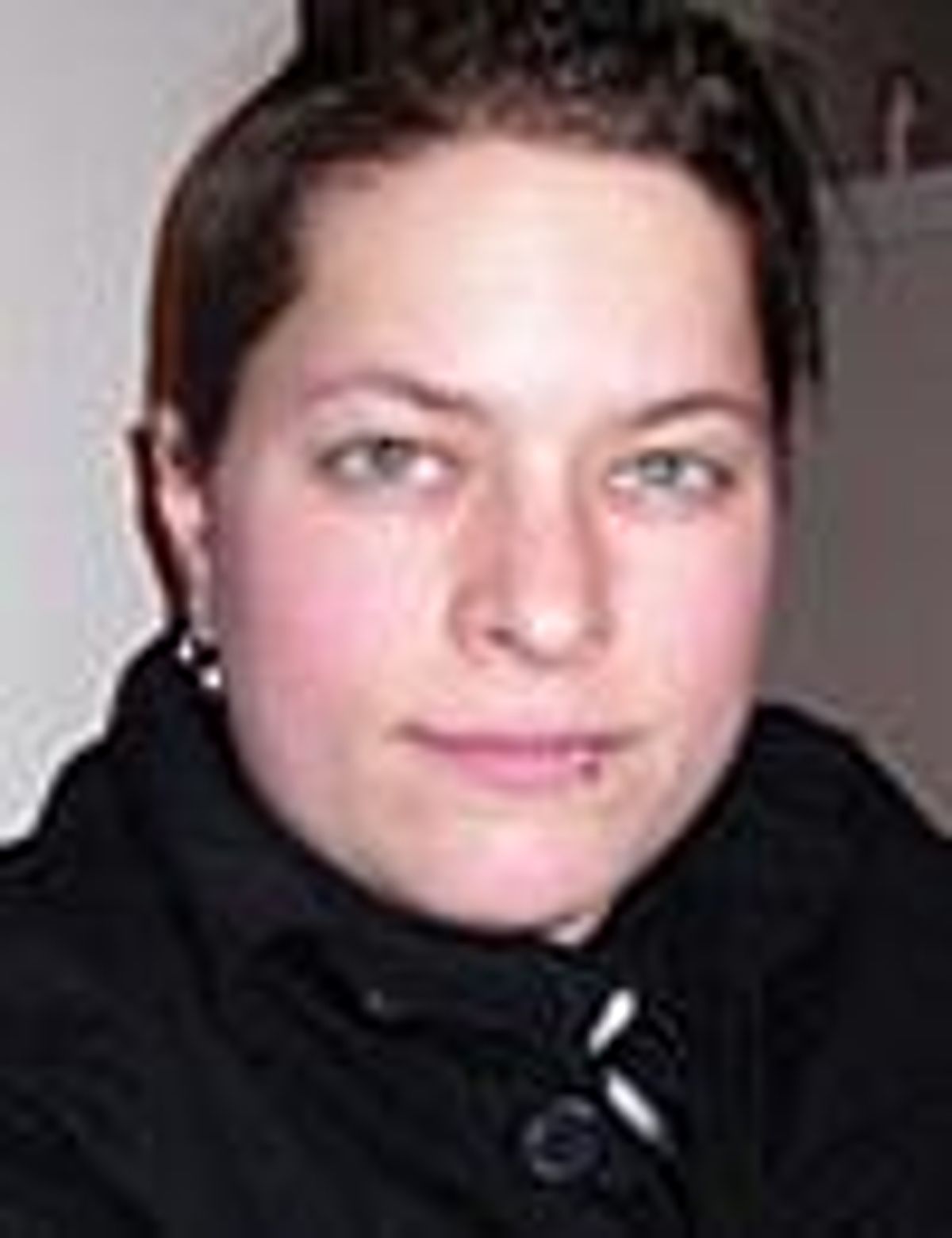This is the third in a series of Advocate
dispatches from the Equality Ride. Sponsored by
Soulforce, the Ride is taking 33 young LGBT activists on
a nationwide tour of college campuses with
policies that call for ejecting openly gay and
lesbian students. Its first two stops--Jerry
Falwell's Liberty University in Lynchburg,
Va., and Regent University in Virginia Beach,
Va.--led to a lot of constructive dialogue as well
as a lot of arrests for
"trespassing" on the universities'
private grounds. The third stop, this past
weekend, was Lee University, "A Christ-centered
liberal arts university" in Cleveland,
Tenn. This dispatch was written by Jamie St. Ledger.
When I first
committed to joining the Soulforce Equality Ride, I applied
a detached, businesslike attitude toward how I would conduct
myself on conservative Christian campuses. The
experiences I had at Liberty University and Regent
University helped to solidify this view because these
colleges were so eager to arrest us for attempting on-campus
dialogue with their students. Though it cannot be said that
Lee University administrators went out of their way to
welcome us, my experiences talking to the students
there has shifted my purpose and understanding of what
this ride is about.
When we first
arrived at Lee [on Thursday morning, March 16], students
had plenty of reasons to avoid us: It was early, they were
rushing to class, and they had no idea that we were
interested only in peaceful, open dialogue. No tricks
up our sleeves.
I quickly learned
that the best way to engage in conversation was to just
sit down somewhere--be it the student union, a campus
bench, or a cafe--and let students approach
me. More students would soon gather and broaden the
discussion.
We usually did
not agree. A few students commented that though my life
was sinful they still believed that Jesus loved me, and they
offered me prayer. Others listened to my personal
story, never judging, yet not necessarily affirming my
experience. Their acceptance was not essential; I
wanted students to feel free to ask me difficult questions.
By the afternoon,
I began meeting students who honestly admitted to
struggling with their sexual orientation, some of whom
claimed to be on the road to becoming ex-gay. Their
admissions came as a surprise to me. Previously I had
doubted that LGBTQ students would want to stay on such
an oppressive campus or that they would risk coming forward
to me with such honesty.
The questions and
discussion these students offered me were compelling.
We could relate to each others' struggles more
intensely, and though I could not offer any solid
reassurance that they would not go to hell, or that
celibacy was an unrealistic solution to avoiding expulsion,
I had a forum for my personal story and could justify
my own imperative to live openly as a lesbian. I
attested that I would not be able to live honestly
while inside the closet or while trying to become straight,
and that my overall growth and comprehension of
unconditional love had suffered back when I constantly
denied and abhorred my natural feelings and need for
intimacy.
I came
face-to-face with the struggles of LGBTQ students living on
a college campus that harasses and expels them. I was
alarmed at their lack of support and community
resources and immediately became fearful of the
repercussions of our visit. Many students thanked the riders
for bringing a temporary oasis of freedom to be
themselves without scrutiny. But they also said that
while we get to leave their situation, they must continue
to survive in such an environment.
One month ago I
would not have known how best to help struggling
Christian LGBTQ people living in such an oppressive place,
aside from suggesting that they transfer. Now I am
convinced that we must provide these students with
safe spaces to confidentially discuss their struggle
and receive no-strings-attached advice. Yes, we need to help
abolish the antigay discriminatory policies, but these
students also need a place to turn to--right
now.
The LGBTQ
students of Lee University are brave, because their strong
Christian faith leads them to remain on their campus and
bear the brunt of antigay policies. They need those of
us on the outside to give them some space to breathe
and to be reassured that they are not alone in their
struggle. They need a strong alternative to the reparative
therapy that is offered to them repeatedly. Until they
have such resources to assist their survival, I remain
fearful for their well-being. I move forward on the
Equality Ride with a greater urgency for more dialogue
with students attending schools with antigay policies. I
want them to come to know that God created them with
an unalterable gift, not a sickness. I feel driven to
provide tangible resources that can prevent the
further torment of those living with a minority sexual
orientation.


















































































